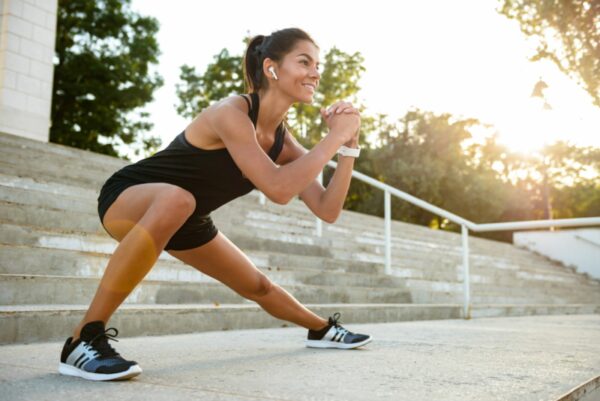
If you’ve been to physical therapy, you likely got a home exercise program. Research says that if you do your home exercise program, you’ll have a significantly better chance of meeting your goals and feeling better. Not doing your program increases the risk of recurrent injury or flare-ups with less positive outcomes long term. Even though they’re important, adherence to home exercise programs is terrible. It’s estimated that only 40 to 50% of patients do their exercises the way they’re supposed to. What can you do to make sure you do your exercises and get the best outcomes? Here are a few ideas.
Plan Ahead
Think about what’s going to get in your way – your schedule, that you’ll forget, or that you don’t have the space or equipment that you need. Once you figure out the problems, come up with solutions. Put your exercises in your schedule, talk to your PT about equipment, or adjusting your program to fit the time you have. If you solve problems before they start, they’re no longer problems.
Address Pain and Beliefs About The Exercise Program
You’ll need to work with your PT on these. If your exercises cause pain, you’re not going to do them. When your PT prescribes your exercises, try them out. If there’s pain, ask your PT about modifications to make them more comfortable.
The other thing that might need to be addressed are your beliefs. If you believe that the exercises won’t help, or that they’re a waste of time, you won’t do them. Again, work with your PT to understand why they’re prescribing those exercises, and what they’re meant to do. Once you know why you’re doing those exercises, you’re more likely to do them.
Get Support
People who have social support are more likely to do their exercises. This is why CrossFit and group exercise classes work. Find a family member or friend to help you stay consistent with your exercises. Your PT can help here too. Have someone ask if you’re doing your exercises, and how they’re going. This will keep you accountable and more likely to do them.
Use Technology
If you like technology and gadgets, they can help you be consistent with your exercises. There are plenty of apps that can track your exercise. Seeing that streak of days you’ve exercised will motivate you not to break it. Smartwatches and activity trackers can fill the same role. If you are one of our patients, we provide you with the technology to track and monitor your own compliance and progress within Keet. You can even communicate with your therapist, getting answers to questions and concerns to keep you motivated and committed to the program between visits.
If you want the best outcomes and the best that PT has to offer, doing your home exercise program will help you get the most out of PT. With a little planning and a little help, you can make sure you’re one of the 50% of the people who do their home exercises consistently to get the best outcomes.
*References:
https://pubmed.ncbi.nlm.nih.gov/32669487/
https://www.physio-pedia.com/Adherence_to_Home_Exercise_Program
Keep Reading…
KNEE ARTHRITIS: RISK FACTORS AND WHAT YOU CAN DO ABOUT IT
In the physical therapy world, a large percentage of our patients suffer from some form of arthritis. In the United States, knee osteoarthritis (OA) affects over 30% of individuals over the age of 60. Knee OA can cause pain, inflammation, swelling, decreased motion in the knee, difficulty walking, and may eventually require surgery such as a total knee replacement.
THE SANTA CLAUSE WORKOUT CHALLENGE
Have you heard of the Santa Clause Workout Challenge? Julie Dmochowski, PT demonstrates in this week’s video blog.
BALANCING CALORIES AND ACTIVITY AROUND THE HOLIDAYS
The holidays revolve around spending time with friends and family creating new memories and partaking in timeless traditions. Much of the holiday season involves time spent sharing a meal together. With all of the parties, get-togethers, and time socializing around the table, it is easy to get carried away while indulging in appetizers, home-cooked meals, and treats native to the season. Below is a list of creative ways to get up and start moving to burn off those extra holiday calories! (Calories burned based on a 150-pound, 65 year old female):





